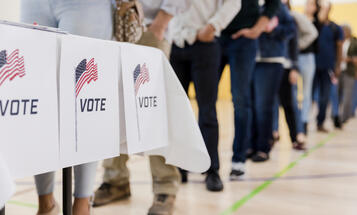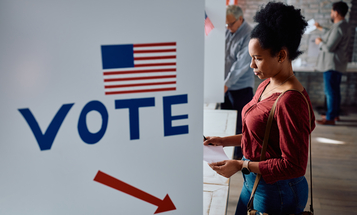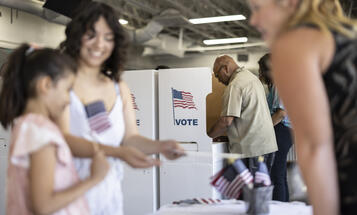
Voting Rights Challenges In the Wake of Shelby County
In the summer of 2013, the U.S. Supreme Court, by a 5-4 margin, struck down one of the most significant provisions of civil rights law ever enacted.
The Court’s decision in Shelby County v. Holder unraveled a core part of the Voting Rights Act, which required that jurisdictions with a history of voting discrimination obtain approval (“preclearance”) from the federal government before they could change their voting laws or practices. In order to obtain this approval, the jurisdiction had to show that any proposed change would not disproportionately burden people of color. If such a showing could not be made, the change was denied.
In the wake of Shelby, many states and local governments began implementing changes to their voting practices that had previously been barred:
- In Texas, the day that Shelby County was decided, officials announced that they would implement a strict photo ID law that had failed to pass preclearance.
- In Georgia, the State instituted a process for purging inactive voters from the registration rolls that had been rejected under the preclearance process.
- In North Carolina, a carefully vetted voter ID bill that had passed the House was sitting in the Senate at the time that Shelby County was decided. After the decision was released, one State Senator said that the legislature could “now … go with the full bill,” which he indicated had been scaled back because the State knew it would have to go through the preclearance procedure. Less than a month after Shelby County, a 57-page bill—that included a stricter voter ID provision, eliminated same-day registration, reduced the early voting period from 17 to 10 calendar days, repealed out-of-precinct voting, and ended pre-registration for 16- and 17-year-olds—was introduced. And, in less than two days, the bill had been passed by both chambers of the North Carolina legislature.
All of these changes are currently being challenged.
For the past week, North Carolina’s voter ID law has been on trial and voting rights advocates are still awaiting decision on the other provisions of the state’s omnibus voter suppression bill—which were debated last summer. The Court is being asked to determine whether these measures discriminate against qualified Black and Latino voters.
The Court’s decision will have an enormous impact on North Carolina voters. And, this impact is heightened because of the State’s failure to meet its federal voter registration obligations under the National Voter Registration Act of 1993 (“NVRA”).
The NVRA requires that public assistance agencies and motor vehicle offices provide voter registration services whenever individuals apply for or renew public assistance benefits, driver’s licenses, or state-issued identification cards, as well as when they report a change of address to the relevant state agency.
After noting a shocking decrease in the number of voter registration applications being submitted by public assistance agencies, determining that the State was regularly failing to offer public assistance clients the opportunity to register to vote, and determining that motor vehicle offices across the state are regularly failing to transmit voter registration information to the appropriate elections officials, Demos and other voting rights advocates took action. We have filed a complaint in a North Carolina federal court in order to bring the state into compliance with the NVRA.
All of the individuals harmed by the state’s non-compliance with the NVRA could have benefitted under the robust democratic system that used to exist in North Carolina. For example, our three individual clients all registered at motor vehicle offices, all went to cast an early ballot on a day when same-day registration was previously available, all were told that their names did not appear on the registration rolls, and all were given a provisional ballot, which they filled out and which was ultimately not counted.
As 2016 moves forward, one thing is clear: this presidential election is likely to be one that sees new and significant hurdles being placed in front of qualified citizens who wish to exercise their fundamental right to vote.
In North Carolina, the elimination of same-day registration, coupled with other restrictive voting measures and the fact that the State is routinely failing to provide federally- required voter registration services means that, in a year where there may be record turnout, voter disenfranchisement may also reach an all-time high.



